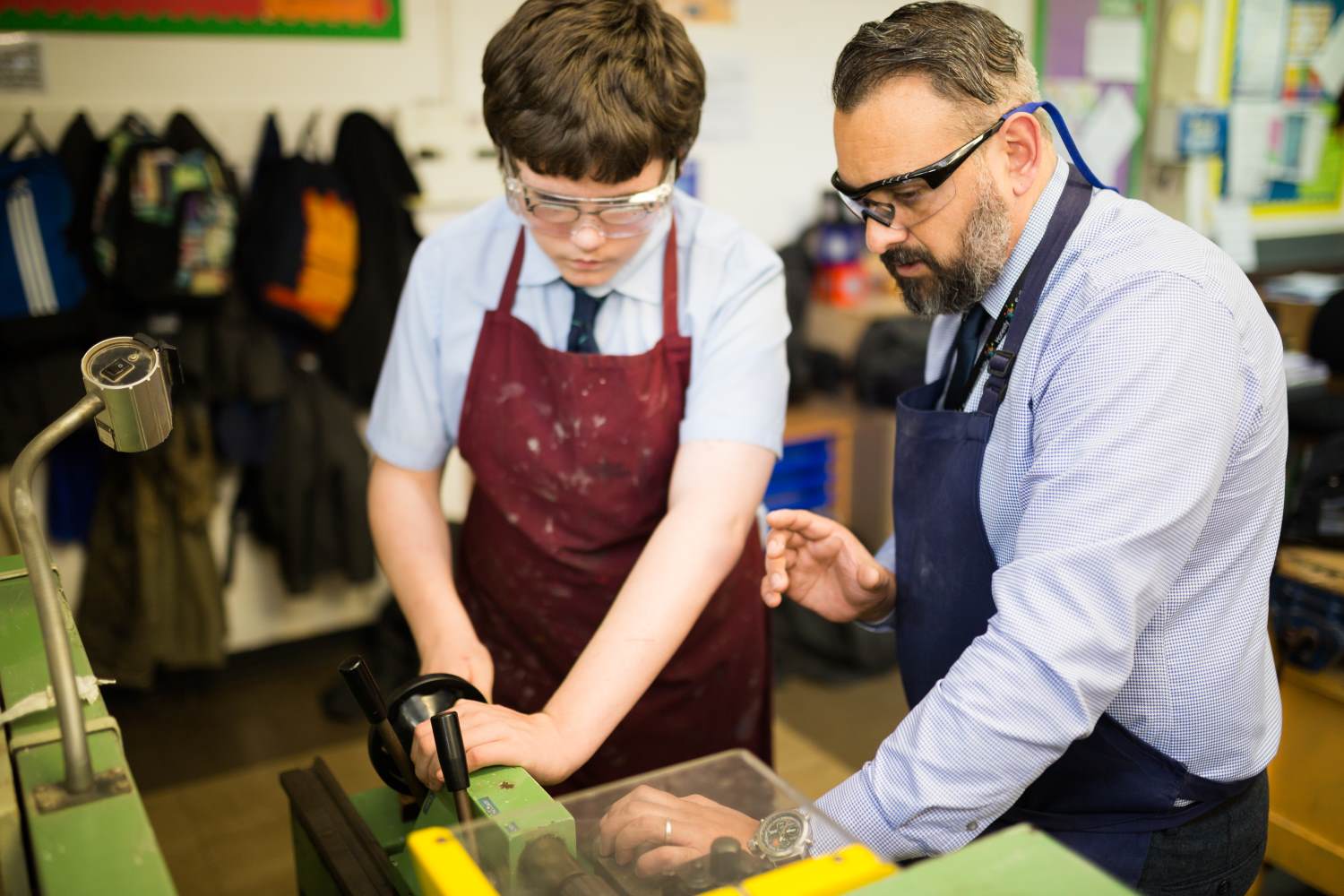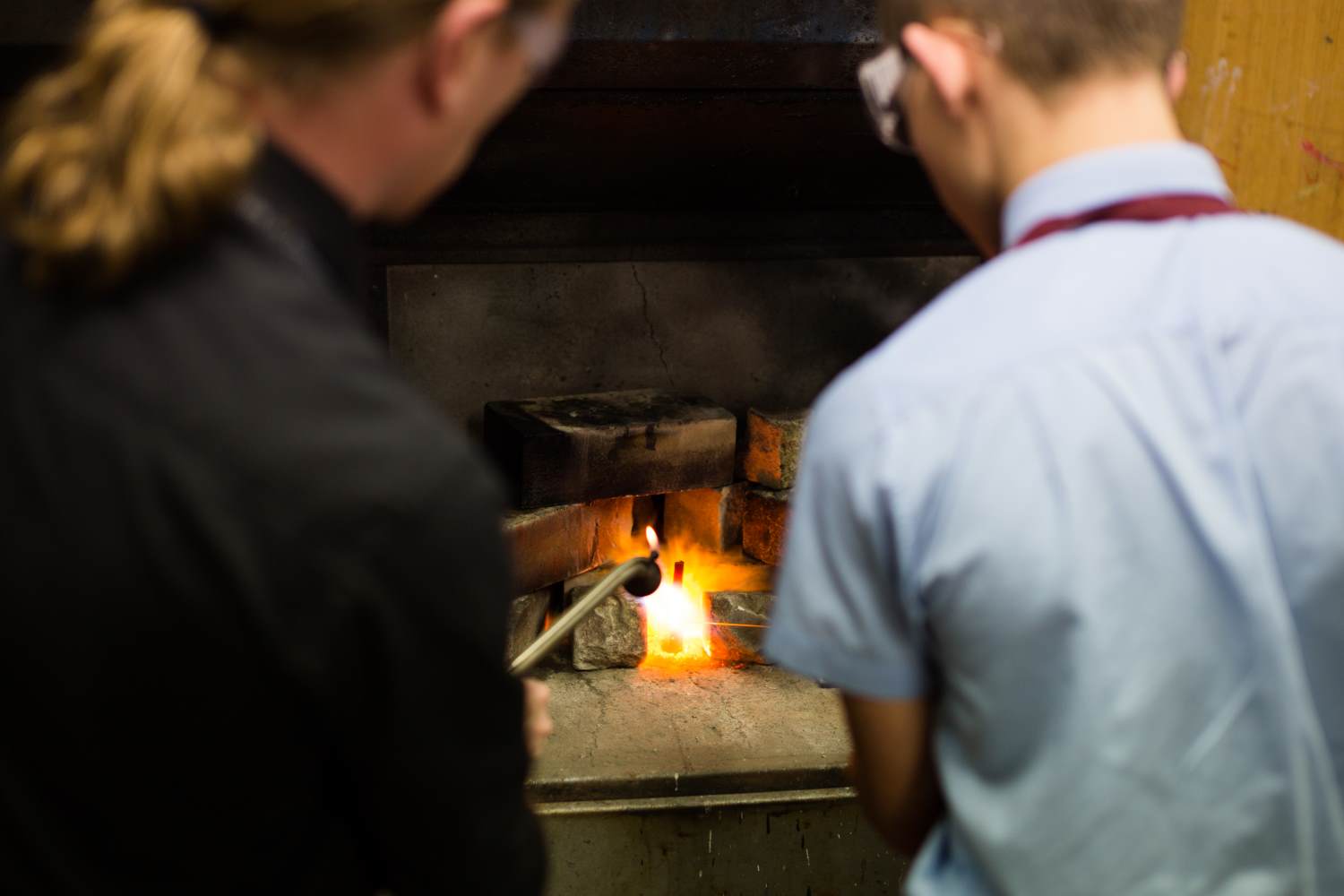Technology
“Design and technology is about making things that work well. Creating these things is hugely exciting: it is an inventive fun activity.”
Sir James Dyson
Industrial designer & founder of Dyson


Meet The Team
Phil Neilens - Head of Technology, Teacher of Technology (Engineering, Food and Resistant Materials)
Richard Abrams - Teacher of Technology (Engineering, Food and Resistant Materials)
Intent
The aim of Design and Technology at Lipson is to provide, for every student, the opportunity to use their creativity and imagination to solve real and relevant problems from a variety of contexts, considering their own and others needs, wants and values. We aim to give our students the knowledge, skills and confidence to advance through both the Design and Technology and Engineering curricula from Year 7, through to Year 13 and then beyond by layering complexity and challenge as our students progress.
At Lipson we encourage our students to:
- Look to the future; be creative and innovative
- Design and make products using a variety of materials that work well and look good
- Make design decisions that matter to the users of the products and to the wider world
- Draw on a wide range of knowledge to solve problems in relevant, real life contexts
- Develop an enterprising attitude and take risks
- See opportunities and make things happen
Our Curriculum Learning Pathway
Technology Curriculum Pathway (PDF)
Implementation
Key Stage 3
In Key Stage 3 our students study the subject for one hour a week throughout years 7, 8 and 9. Their time is divided evenly between D&T and Food.
D&T:
The tasks and activities our students undertake are constructed around a set of core skills that fall under the National Curriculum headings of Design, Make, Evaluate and Technical Knowledge. We try to avoid a traditional ‘project based’ approach, instead focusing on knowledge and skills acquisition rather than the practical outcome (although most units of work are built around a practical outcome), with each module related to a specific context, for example healthcare. Students begin each module with an ‘end point plan’ that summarises the key knowledge, skills and terminology they will need to secure. Our curriculum is designed so that many of these skills are frequently revisited throughout Key stage 3 and beyond.
During Key Stage 3, students work through modules that are sequenced in a way to build on prior knowledge, skills and experiences.
Key Stage 4 and 5
Our Key Stage 4 curriculum prepares our students to participate confidently and successfully in an increasingly technological world; and be aware of, and learn from, wider influences on design and technology and engineering (both taught as discrete subjects at Key stage 4) including historical, social/cultural, environmental and economic factors. Learners use key design and technology terminology including those related to: designing, innovation and communication; materials and technologies; making, manufacture and production; critiquing, values and ethics.
Engineering students focus less on the design process, but develop a detailed understanding of the products and services supplied by a variety of engineering sectors, engineering principles, materials technology, manufacturing processes and equipment. Progression into Key Stage 5 Engineering is seamless and builds upon many of the skills acquired during Key Stage 4 in both Engineering and Design and Technology. Our students are expected to solve complex engineering problems as individuals and as part of a team, using scientific and mathematical knowledge that underpins all of their study in the subject.
What exam courses do we follow?
Design and Technology:
Eduqas Design and Technology.
- 50% Non Examined Assessment task - A design and make task based one of three contexts set by the exam board.
- 50% Examination taken in May or June of Year 11
Key Stage 4 Engineering:
NCFE Level 2 Certificate in Engineering Studies.
- 60% Non Examined Assessment - A synoptic project set by the exam board in December of Year 11
- 40% Examination taken in November of Year 11.
Key Stage 5 Engineering:
Pearson BTEC Level 3 National Extended Certificate in Engineering.
- Unit 1 - Engineering Principles - Examination taken in January / June of Year 13
- Unit 2 - Delivery of Engineering Processes Safely as a Team - Internally assessed during Year 12
- Unit 3 - Engineering Product Design - Examination taken in May / June Year 13
- Unit 44- Fabrication Manufacturing Processes - Internally assessed during Year 12 and 13.
Accommodation and facilities comprise:
3 mixed material Technology workshops in which students can work with wood, metals, plastics and electronics.
CAD / CAM suite with CNC routing and laser cutting and 3D printing machines.
How do we enrich our students outside of the classroom?
Design and technology gives young people the skills and abilities to engage positively with the designed and made world and to harness the benefits of technology. They learn how products and systems are designed and manufactured, gaining confidence in their own practical ability.
Wherever possible we engage in local STEM initiatives, frequently working alongside organisations such as The University of Plymouth, Babcock, Hellerman Tyton, Schneider Electric, SouthWest Toolmakers.
